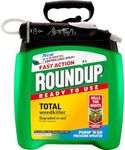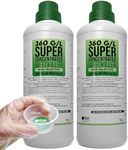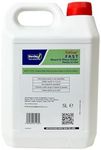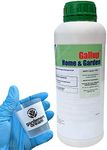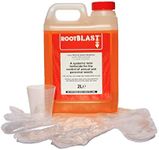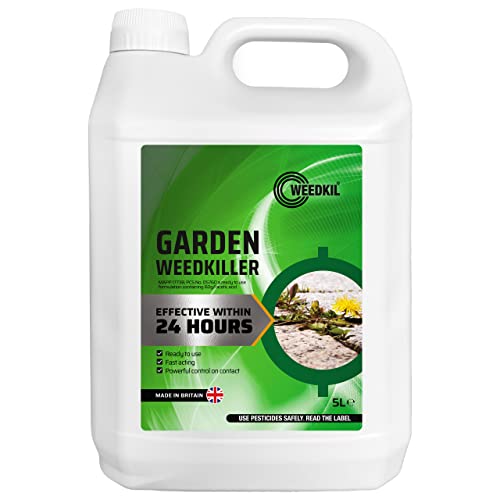Buying Guide for the Best Strongest Weed Killer
Choosing the right weed killer is essential for maintaining a healthy and attractive garden or lawn. The strongest weed killers are designed to tackle tough, persistent weeds, but it's important to select one that suits your specific needs and environment. Consider the type of weeds you're dealing with, the area you need to treat, and any environmental concerns you may have. Understanding the key specifications of weed killers will help you make an informed decision and ensure effective weed control.Active IngredientsThe active ingredients in a weed killer determine its effectiveness and the types of weeds it can control. Common active ingredients include glyphosate, 2,4-D, and dicamba. Glyphosate is a non-selective herbicide that kills most plants it comes into contact with, making it ideal for clearing large areas. 2,4-D and dicamba are selective herbicides that target broadleaf weeds while leaving grasses unharmed. Choose an active ingredient based on the type of weeds you need to eliminate and whether you want to preserve surrounding plants.
Systemic vs. ContactSystemic weed killers are absorbed by the plant and travel through its system, killing it from the roots up. This makes them effective for perennial weeds with deep root systems. Contact weed killers, on the other hand, only affect the parts of the plant they touch, making them suitable for annual weeds or surface-level control. If you're dealing with stubborn, deep-rooted weeds, a systemic herbicide is likely the best choice. For quick results on surface weeds, a contact herbicide may suffice.
Pre-emergent vs. Post-emergentPre-emergent weed killers prevent weed seeds from germinating, making them ideal for use before weeds appear. Post-emergent weed killers target existing weeds, making them suitable for dealing with visible weed problems. If you're planning ahead and want to prevent weeds from taking hold, a pre-emergent product is the way to go. If you're already facing a weed issue, a post-emergent solution will be necessary.
Application MethodWeed killers come in various forms, including liquid concentrates, ready-to-use sprays, and granular products. Liquid concentrates require mixing and are often used for large areas, while ready-to-use sprays are convenient for spot treatments. Granular products are typically used for pre-emergent applications. Consider the size of the area you need to treat and your preference for convenience when choosing an application method.
Environmental ImpactThe environmental impact of a weed killer is an important consideration, especially if you have pets, children, or a garden with beneficial plants and insects. Some weed killers are designed to be more environmentally friendly, breaking down quickly in the soil and posing less risk to non-target plants and animals. If environmental concerns are a priority, look for products labeled as eco-friendly or organic.
